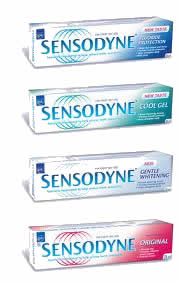MOLLUSCICIDAL ACTIVITY OF SOME CAMEROONIAN PLANTS ON BULINUS SPECIES
Abstract
Objective: To evaluate some locally available plants for their molluscicidal activity on Bulinus camerunensis and B. truncatus (slender form).
Design: Experimental studies.
Setting: Ndongo stream near the University of Buea and the University of Buea Life Sciences Laboratory.
Subjects: Evaluation of molluscicidal activity on snails of Bulinus camerunensis and B. truncatus (slender form).
Main outcome measures: Plant extracts with molluscicidal activity determined. Determination of LC50, LC90 and LC100 of the potent plant extracts. Application of the extracts on aquaria-reared snails. Semi-field application of extracts.
Results: A preliminary screening test using 10,000ppm solution of the water extracts of thirteen plants revealed that 61.5% (8/13) of the plants investigated had molluscicidal properties, with snail mortality rates above 90%. Extracts of Nicotiana tabacum, Aframomum citratum, A. melegueta, Curcuma domestica and Solanum scabrum killed 100% of the snails after twenty four hours exposure.
B. camerunensis was more susceptible to the water extracts than B. truncatus. The LC50, LC90 and LC100 of the different plant extracts against B. camerunensis were generally lower than those against B. truncatus. The concentrations that produced 50%, 90% and 100% snail mortalities were lower
with the methanol extracts than with water extracts, indicating that the methanol extracts were more toxic to the snails than the water extracts. Generally, the eggs were more susceptible to the extracts than the young and adult snails. Application of the water extracts at LC 100 on snails reared in aquaria and under semi-field conditions revealed that N. tabacum could kill up to 100% of the snails in aquaria and 61.25% under semi-field conditions.
Conclusion: Eight plant species with molluscicidal activity were identified, among which Nicotiana tabacum, Aframomum citratum, A. melegueta, Solanum scabrum and Curcuma domestica presented the highest activity. B. camerunensis was more susceptible to all the plant extracts tested than B.
truncatus, and the methanol extracts proved more toxic than the water extracts. Semi-field testing of potent extracts showed promise, with N. tabacum having the highest effects on the snails.
Design: Experimental studies.
Setting: Ndongo stream near the University of Buea and the University of Buea Life Sciences Laboratory.
Subjects: Evaluation of molluscicidal activity on snails of Bulinus camerunensis and B. truncatus (slender form).
Main outcome measures: Plant extracts with molluscicidal activity determined. Determination of LC50, LC90 and LC100 of the potent plant extracts. Application of the extracts on aquaria-reared snails. Semi-field application of extracts.
Results: A preliminary screening test using 10,000ppm solution of the water extracts of thirteen plants revealed that 61.5% (8/13) of the plants investigated had molluscicidal properties, with snail mortality rates above 90%. Extracts of Nicotiana tabacum, Aframomum citratum, A. melegueta, Curcuma domestica and Solanum scabrum killed 100% of the snails after twenty four hours exposure.
B. camerunensis was more susceptible to the water extracts than B. truncatus. The LC50, LC90 and LC100 of the different plant extracts against B. camerunensis were generally lower than those against B. truncatus. The concentrations that produced 50%, 90% and 100% snail mortalities were lower
with the methanol extracts than with water extracts, indicating that the methanol extracts were more toxic to the snails than the water extracts. Generally, the eggs were more susceptible to the extracts than the young and adult snails. Application of the water extracts at LC 100 on snails reared in aquaria and under semi-field conditions revealed that N. tabacum could kill up to 100% of the snails in aquaria and 61.25% under semi-field conditions.
Conclusion: Eight plant species with molluscicidal activity were identified, among which Nicotiana tabacum, Aframomum citratum, A. melegueta, Solanum scabrum and Curcuma domestica presented the highest activity. B. camerunensis was more susceptible to all the plant extracts tested than B.
truncatus, and the methanol extracts proved more toxic than the water extracts. Semi-field testing of potent extracts showed promise, with N. tabacum having the highest effects on the snails.
Refbacks
- There are currently no refbacks.


